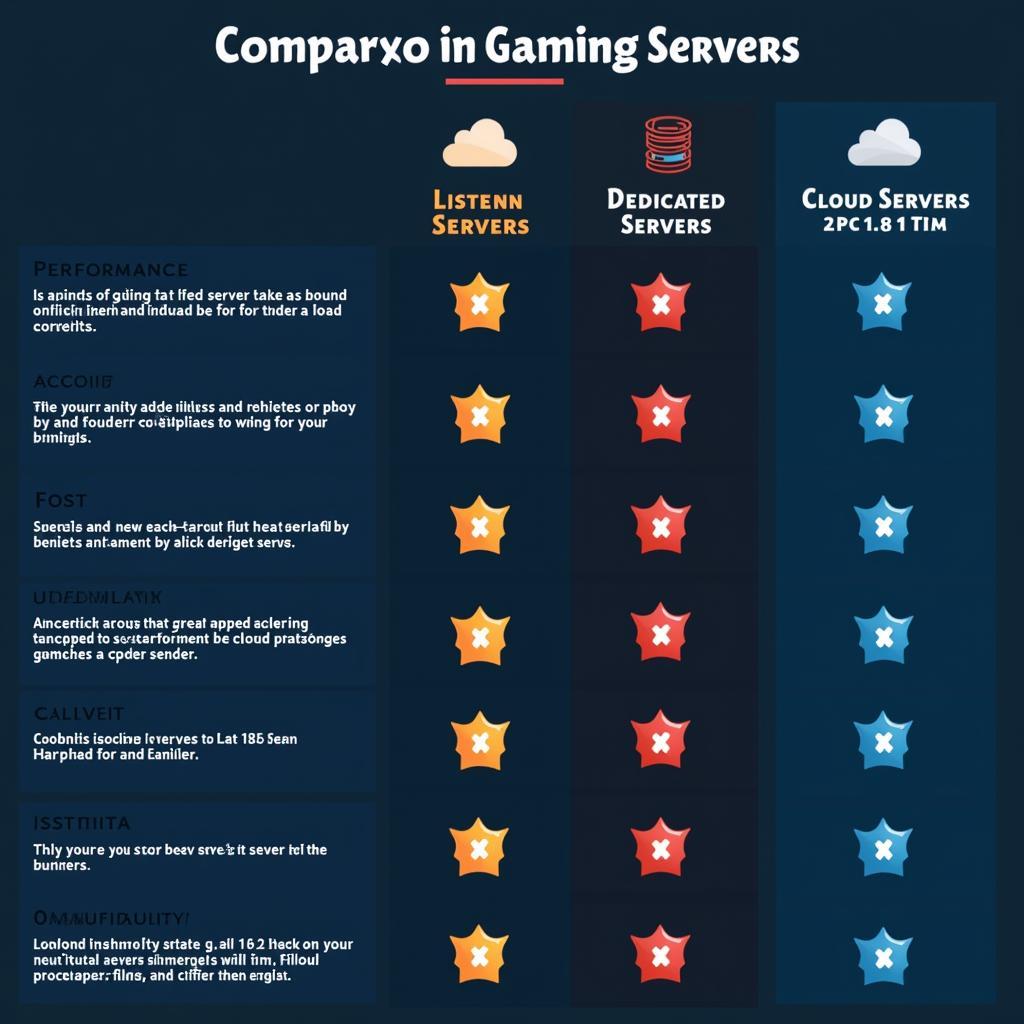How Do Gaming Servers Work?
November 4, 2024Gaming servers are the backbone of online multiplayer games, enabling players worldwide to connect and compete in virtual worlds. They manage game data, player interactions, and ensure a smooth and fair gaming experience. But how exactly do these digital powerhouses operate? This article delves deep into the mechanics of gaming servers, explaining the complexities in simple terms.
Understanding the Role of a Gaming Server
A gaming server is essentially a specialized computer dedicated to hosting and running a specific game. It acts as a central hub, receiving information from each player connected, processing that information according to the game’s rules, and then sending updated information back to each player. This constant flow of data allows for real-time interaction and synchronized gameplay between multiple users. Think of it as the conductor of an orchestra, ensuring every instrument plays in harmony.
After connecting to the server initially, your client (your game on your computer or console) maintains a constant two-way communication stream. This allows the server to track your actions, validate them against the game rules, and update the game state for all other connected players.
Different Types of Gaming Servers
Several types of gaming servers cater to different needs and game designs. These include:
- Listen Servers: Often used in peer-to-peer (P2P) games, one player’s computer acts as the host, managing game data and distributing it to other players. However, this setup can lead to performance issues if the host’s connection is unstable.
- Dedicated Servers: These are separate, powerful computers solely dedicated to hosting the game. They offer greater stability and performance compared to listen servers, leading to a smoother and more reliable gaming experience. Check out our article on sg servers to learn more about regional dedicated servers.
- Cloud Servers: Leveraging the power of cloud computing, these servers offer scalability and flexibility. They can dynamically adjust resources based on player demand, ensuring optimal performance even during peak hours.
Choosing the Right Server
Selecting the right server type is crucial for an optimal gaming experience. Factors to consider include the game’s complexity, the number of players, and the desired performance level. For instance, a fast-paced, competitive game with many players would benefit from a dedicated or cloud server, while a simple casual game might suffice with a listen server.
 Types of Gaming Servers Comparison Table
Types of Gaming Servers Comparison Table
Key Components of a Gaming Server
Several vital components make up a gaming server:
- Network Interface: This handles communication between the server and the players’ clients. A robust network interface is crucial for smooth, lag-free gameplay. For information on improving your connection, consider our resource on proxy gaming.
- Processor (CPU): This is the “brain” of the server, responsible for processing game logic, player actions, and physics calculations.
- Memory (RAM): The server uses RAM to store frequently accessed data, allowing for quick retrieval and smooth performance.
- Storage (Hard Drive or SSD): This stores game files, player data, and server software.
How Do Gaming Servers Handle Cheating?
Gaming servers employ various anti-cheat mechanisms to maintain fair play. These can include:
- Server-Side Validation: The server verifies player actions before applying them to the game state, preventing impossible or illegal moves.
- Anticheat Software: Dedicated software can detect and prevent common cheating methods.
- Player Reporting Systems: Players can report suspected cheaters, allowing administrators to investigate and take appropriate action.
Conclusion
Understanding how gaming servers work can enhance your appreciation for the intricate systems that power online multiplayer experiences. From the constant data exchange to the various server types and anti-cheat measures, each element contributes to creating immersive and competitive virtual worlds. Now that you know more about how these digital arenas function, you can better troubleshoot connection issues and choose the right server for your gaming needs. Check out our article on proxy server ps5 for more information related to console gaming. Looking for a BF4 server? We have you covered! Explore our resource on server bf4. Another useful resource you might find helpful is our page on naraka bladepoint server status.
When you need assistance, please contact us: Phone Number: 0915117117, Email: [email protected] or visit us at: Hamlet 3, Binh An, Phu Thuong, Vietnam, Binh Phuoc 830000, Vietnam. We have a 24/7 customer support team.